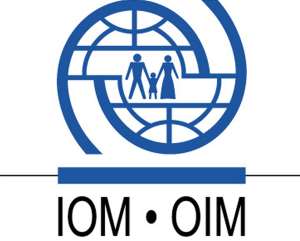
GENEVA, Switzerland, May 22, 2012/African Press Organization (APO)/ -- IOM is urgently appealing for USD 3.5 million to provide immediate life-saving assistance to internally displaced Malians who have fled fighting and insecurity in the north of the country to seek shelter in the capital Bamako, the northern river port city of Mopti and the western city of Kayes.
IOM is also working with local partners, including the Malian Red Cross, the Association of Municipalities of Mali (AMM) and the Malian Civil Protection to gain access to displaced populations (IDPs) who remain trapped in northern conflict areas without adequate aid.
The humanitarian assistance, including the provision of shelter and non-food items, also aims to assist vulnerable groups of IDPs who have gathered in the northern regions of Gao, Kidal and Timbuktu.
The funding is also needed to provide livelihood support to drought and conflict-affected host communities who can no longer cope with the tens of thousands of vulnerable displaced people arriving in their towns and villages.
The food crisis in Mali is now affecting some 3.5 million people, including 1.84 million suffering from severe food insecurity. Current estimates indicate that at least 147,000 people have been forcibly displaced by the conflict, of which an estimated 45,000 are now located in the south of the country.
An estimated 97 per cent of the IDPs are living with host families in host communities. Of these, an estimated 67 per cent depend entirely on host families for food.
"Vulnerable displaced families living in drought-affected host communities are stretching very limited resources," says IOM Head of Office in Mali Lily Sanya.
"We therefore urgently need funding to provide emergency supplies to vulnerable IDPs and support to host communities to help them cope with the additional pressures resulting from this latest displacement," she adds.
Reports of sexual violence and abduction of children for use as soldiers have contributed to the on-going exodus of populations from the north to border regions.
The new funding will help IOM to set up a comprehensive displacement tracking matrix to monitor movements in Mali to help the humanitarian community to assess needs and target aid more effectively.
It will also allow IOM and its partners to relocate people at risk to safer locations, to identify of victims of trafficking or those at risk of trafficking, including unaccompanied minors, and to provide psychosocial assistance and health referrals.
"The deteriorating security situation in the north and widespread criminal activities have disrupted economic routes normally used to transport goods, which effectively means most displaced families can no longer afford staple foods such as millet, sorghum, rice and corn," says Sanya.
"We must act now to implement these measures ahead of the rainy season, which will further complicate delivery of life-saving assistance," she adds.
IOM is also concerned that the current lack of in-country assistance in Mali will push more IDPs to migrate to neighbouring countries, including Mauretania, Burkina Faso and Niger, which are already struggling to cope with their own food insecurity and the arrival of more than 160,000 Malian refugees. The return of tens of thousands of migrant workers from Libya to Mali and its neighbours in the past year has further contributed to the crisis.




 Former Kotoko Player George Asare elected SRC President at PUG Law Faculty
Former Kotoko Player George Asare elected SRC President at PUG Law Faculty
 2024 elections: Consider ‘dumsor’ when casting your votes; NPP deserves less — P...
2024 elections: Consider ‘dumsor’ when casting your votes; NPP deserves less — P...
 You have no grounds to call Mahama incompetent; you’ve failed — Prof. Marfo blas...
You have no grounds to call Mahama incompetent; you’ve failed — Prof. Marfo blas...
 2024 elections: NPP creates better policies for people like us; we’ll vote for B...
2024 elections: NPP creates better policies for people like us; we’ll vote for B...
 Don’t exchange your life for wealth; a sparkle of fire can be your end — Gender ...
Don’t exchange your life for wealth; a sparkle of fire can be your end — Gender ...
 Ghana’s newly installed Poland train reportedly involved in accident while on a ...
Ghana’s newly installed Poland train reportedly involved in accident while on a ...
 Chieftaincy disputes: Government imposes 4pm to 7am curfew on Sampa township
Chieftaincy disputes: Government imposes 4pm to 7am curfew on Sampa township
 Franklin Cudjoe fumes at unaccountable wasteful executive living large at the ex...
Franklin Cudjoe fumes at unaccountable wasteful executive living large at the ex...
 I'll 'stoop too low' for votes; I'm never moved by your propaganda — Oquaye Jnr ...
I'll 'stoop too low' for votes; I'm never moved by your propaganda — Oquaye Jnr ...
 Kumasi Thermal Plant commissioning: I pray God opens the eyes of leaders who don...
Kumasi Thermal Plant commissioning: I pray God opens the eyes of leaders who don...
